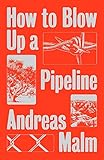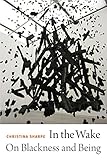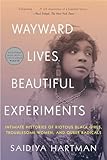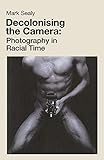The post has not come. The post hasn’t come in six months. The last delivery was in May: a bundle of books and journals from 2020, some art books. Most of my copies of The Paris Review, The LRB, The White Review, Granta are growing mouldy in the docks of the capital.
Getting mail from abroad, pre-Covid, was already quite the hassle. Most books usually did arrive, though: December’s post would be delivered in March; parcels that I’d written off would find their way into my P.O. box after having been re-routed from Mauritania.
I wait and I am disappointed every day. There is so much horror and death in the world, in my country, that it feels so trite to be complaining about the post. And yet.
I spend most of my disposable income on books and literary journals. “Income,” what a joke. Mine was slashed during the pandemic, after the near-collapse of our economy. My income now has to reckon with our new excruciating levels of inflation and outrageous shipping costs. Still, the fact that I can still buy books from abroad makes me luckier than most people here. We have no proper English-language libraries in Mauritius and the selection in bookshops is poor.
Anyway. All this to say that most of the books I bought to read in 2021 were electronic (hate the format, grateful for the new material). They kept me company in what was yet another difficult year.

 Poetry, first and always, like last year. In 2020 I’d tie my son to me in a baby wrap and I’d walk up and down my apartment so he’d sleep, a book of poetry in my hand. I could hold a poem in my head and think about it for the rest of the day. For many months, this was enough, poems kept me going. My son runs and talks at great speed now. My mother-in-law takes care of him for a few hours each morning so that I can work. In between jobs, I read poems. Some collections I dipped into this year: Louise Glück’s Poems 1962-2012; Hannah Sullivan’s Three Poems; Sharon Olds’s Selected Poems; Henri Cole’s Blizzard; Jericho Brown’s The Tradition; Louis MacNeice’s Collected Poems; Frances Leviston’s Disinformation; Seamus Heaney’s Opened Ground (pages held together with sticky tape); Carl Philips’s Quiver of Arrows and Wild is the Wind; Rimbaud’s Oeuvres Completes. I hate that I keep turning to Derek Walcott’s Another Life, Omeros, and the volume of his collected poems –– a wretched man, and I feel almost dependent on his work.
Poetry, first and always, like last year. In 2020 I’d tie my son to me in a baby wrap and I’d walk up and down my apartment so he’d sleep, a book of poetry in my hand. I could hold a poem in my head and think about it for the rest of the day. For many months, this was enough, poems kept me going. My son runs and talks at great speed now. My mother-in-law takes care of him for a few hours each morning so that I can work. In between jobs, I read poems. Some collections I dipped into this year: Louise Glück’s Poems 1962-2012; Hannah Sullivan’s Three Poems; Sharon Olds’s Selected Poems; Henri Cole’s Blizzard; Jericho Brown’s The Tradition; Louis MacNeice’s Collected Poems; Frances Leviston’s Disinformation; Seamus Heaney’s Opened Ground (pages held together with sticky tape); Carl Philips’s Quiver of Arrows and Wild is the Wind; Rimbaud’s Oeuvres Completes. I hate that I keep turning to Derek Walcott’s Another Life, Omeros, and the volume of his collected poems –– a wretched man, and I feel almost dependent on his work.


 I started the year reading Dan Fox’s Limbo, which was clever and surprisingly affecting. Fox travelled from London to Shanghai on a container ship; I can’t even long for this kind of adventure now, pandemic and gender/ethnicity notwithstanding. I recoil every time I see a container ship near our lagoon after the Wakashio disaster. I wrote about the oil spill for Granta in early February; while going through edits and emails, I read Andreas Malm’s excellent How to Blow Up a Pipeline, Joanna Pocock’s Surrender, Daisy Hildyard’s The Second Body (a book I love and reread often) and Tim Clark’s Ecocriticism on the edge.
I started the year reading Dan Fox’s Limbo, which was clever and surprisingly affecting. Fox travelled from London to Shanghai on a container ship; I can’t even long for this kind of adventure now, pandemic and gender/ethnicity notwithstanding. I recoil every time I see a container ship near our lagoon after the Wakashio disaster. I wrote about the oil spill for Granta in early February; while going through edits and emails, I read Andreas Malm’s excellent How to Blow Up a Pipeline, Joanna Pocock’s Surrender, Daisy Hildyard’s The Second Body (a book I love and reread often) and Tim Clark’s Ecocriticism on the edge.


 In February, March, and April I read and loved Patricia Lockwood’s Priestdaddy and No One Is Talking About This; Brandon Taylor’s Real Life; The Bridge of Beyond by Simone Schwartz-Bart (which should be taught alongside Rhys’s Wide Sargasso Sea); Fernanda Melchor’s Hurricane Season, translated by Sophie Hughes; Niven Govinden’s Diary of a Film (such an elegant rush of a novel); Lauren Oyler’s Fake Accounts; Katharine Kilalea’s OK, Mr Field; Hari Kunzru’s Red Pill; Frances Leviston‘s The Voice in My Ear; Saeed Jones’s How We Fight for Our Lives; John Patrick McHugh’s Pure Gold; John Berger’s G; Henry James’s The Portrait of a Lady; Raven Leilani’s Luster; Libertie by Kaitlyn Greenidge (which I really hope will be turned into a film) and Christina Sharpe’s In the Wake (if only I’d read this years ago, at university! Such an astounding, lyrical blend of history, philosophy, art, criticism—it completely reshaped what I thought was possible in nonfiction), and Guy de Maupassant’s short stories.
In February, March, and April I read and loved Patricia Lockwood’s Priestdaddy and No One Is Talking About This; Brandon Taylor’s Real Life; The Bridge of Beyond by Simone Schwartz-Bart (which should be taught alongside Rhys’s Wide Sargasso Sea); Fernanda Melchor’s Hurricane Season, translated by Sophie Hughes; Niven Govinden’s Diary of a Film (such an elegant rush of a novel); Lauren Oyler’s Fake Accounts; Katharine Kilalea’s OK, Mr Field; Hari Kunzru’s Red Pill; Frances Leviston‘s The Voice in My Ear; Saeed Jones’s How We Fight for Our Lives; John Patrick McHugh’s Pure Gold; John Berger’s G; Henry James’s The Portrait of a Lady; Raven Leilani’s Luster; Libertie by Kaitlyn Greenidge (which I really hope will be turned into a film) and Christina Sharpe’s In the Wake (if only I’d read this years ago, at university! Such an astounding, lyrical blend of history, philosophy, art, criticism—it completely reshaped what I thought was possible in nonfiction), and Guy de Maupassant’s short stories.


 April was a strange month. The government was considering a “proposal” to implement a digital surveillance system to counter the so-called “abuse and misuse” of social media in Mauritius. This came after a series of inane arrests, such as making memes mocking the prime minister. We were under lockdown when the proposal was announced. I created a petition, not really knowing what else to do. I hoped it’d gain some traction. Next thing I knew I was on BBC Radio. I was introduced as an activist, a term that I’d never used to describe myself before. While I was figuring out what activism could be for someone like me—a quiet homebody with no social life—I spent time reading and thinking about the novels that emerged after Brexit, particularly Olivia Sudjic’s Asylum Road, Xiaolu Guo’s A Lover’s Discourse, and Natasha Brown’s Assembly. They are sharp and brilliant and (though I loathe the cliché) absolutely needle into the pulse of the moment. Asylum Road was the first of the three that I read early in January, and I loved it so much that I reviewed it. Research included reading Maria Todorova’s Imagining the Balkans and Aleksander Hemon’s gorgeous The Lazarus Project and The Book of My Lives.
April was a strange month. The government was considering a “proposal” to implement a digital surveillance system to counter the so-called “abuse and misuse” of social media in Mauritius. This came after a series of inane arrests, such as making memes mocking the prime minister. We were under lockdown when the proposal was announced. I created a petition, not really knowing what else to do. I hoped it’d gain some traction. Next thing I knew I was on BBC Radio. I was introduced as an activist, a term that I’d never used to describe myself before. While I was figuring out what activism could be for someone like me—a quiet homebody with no social life—I spent time reading and thinking about the novels that emerged after Brexit, particularly Olivia Sudjic’s Asylum Road, Xiaolu Guo’s A Lover’s Discourse, and Natasha Brown’s Assembly. They are sharp and brilliant and (though I loathe the cliché) absolutely needle into the pulse of the moment. Asylum Road was the first of the three that I read early in January, and I loved it so much that I reviewed it. Research included reading Maria Todorova’s Imagining the Balkans and Aleksander Hemon’s gorgeous The Lazarus Project and The Book of My Lives.


 The government backed down on the proposal. That wasn’t the end of my worries, though: the anti-vaccination movement here was growing, led by Mauritians and expatriates. They spewed discourse imported from America and France; I read David Neiwert’s Alt-America and Red Pill Blue Pill and Talia Lavin’s Culture Warlords, which helped me understand where some of these ideas were coming from. I thought, after the success of my petition, that I’d be able to perhaps counter this movement and protect more people. I was wrong. I was stunned by the outrage directed at me from many Mauritians, some of them leading public figures. A torrent of comments asking me to be raped, beaten, silenced. I was doxxed. People mocked me for using a pseudonym; people shared anti-semitic pictures of and articles about my family. I took screenshots and when I was too numb, my friends took over. For many months afterwards, I couldn’t go out. In the supermarket, I’d look around and think maybe it was this person or that person who said they wanted to kill me.
The government backed down on the proposal. That wasn’t the end of my worries, though: the anti-vaccination movement here was growing, led by Mauritians and expatriates. They spewed discourse imported from America and France; I read David Neiwert’s Alt-America and Red Pill Blue Pill and Talia Lavin’s Culture Warlords, which helped me understand where some of these ideas were coming from. I thought, after the success of my petition, that I’d be able to perhaps counter this movement and protect more people. I was wrong. I was stunned by the outrage directed at me from many Mauritians, some of them leading public figures. A torrent of comments asking me to be raped, beaten, silenced. I was doxxed. People mocked me for using a pseudonym; people shared anti-semitic pictures of and articles about my family. I took screenshots and when I was too numb, my friends took over. For many months afterwards, I couldn’t go out. In the supermarket, I’d look around and think maybe it was this person or that person who said they wanted to kill me.
 For what felt like a long time I was unable to read. Vinod Busjeet’s Silent Winds, Dry Seas was published and I couldn’t review it as I had intended to. I felt naïve and ashamed. I had asked Mauritians to listen to me but who was I, in the end? The only times I’d stepped into public hospitals was as a journalist. I knew, but hadn’t actually suffered from, the outrageous lack of care doled out in those places. These people had excellent reasons to doubt the medical system and its products.
For what felt like a long time I was unable to read. Vinod Busjeet’s Silent Winds, Dry Seas was published and I couldn’t review it as I had intended to. I felt naïve and ashamed. I had asked Mauritians to listen to me but who was I, in the end? The only times I’d stepped into public hospitals was as a journalist. I knew, but hadn’t actually suffered from, the outrageous lack of care doled out in those places. These people had excellent reasons to doubt the medical system and its products.


 Who was I? A writer who wouldn’t have chosen to keep living in Mauritius anyway, even before the incident. But such is life. You make a room of your own in an unwanted house.
Who was I? A writer who wouldn’t have chosen to keep living in Mauritius anyway, even before the incident. But such is life. You make a room of your own in an unwanted house.
A selection of books by Frances Borzello arrived around then. I plunged into them: Seeing Ourselves: Women’s Self Portraits; The Naked Nude; At Home: The Domestic Interior in Art; A World of Our Own: Women as Artists Since the Renaissance. They were a pleasure to read and gaze at. They gave me some quiet in my head, at last. In the women artists Borzello describes, I found resilience, too.


 On art and women artists: I joined a reading group led by Lauren Goldenberg early in the year (#womenbios21) and it has proved to be such an enriching experience. I learned so much about artists I’d never or barely heard of. So far we have read Francesca Wade’s Square Haunting; Saidiya Hartman’s Wayward Lives, Beautiful Experiments (I read Lose Your Mother straight afterwards, too), Mary Gabriel’s Ninth Street Women (it is long, it is worth it), and Maggie Doherty’s The Equivalents.
On art and women artists: I joined a reading group led by Lauren Goldenberg early in the year (#womenbios21) and it has proved to be such an enriching experience. I learned so much about artists I’d never or barely heard of. So far we have read Francesca Wade’s Square Haunting; Saidiya Hartman’s Wayward Lives, Beautiful Experiments (I read Lose Your Mother straight afterwards, too), Mary Gabriel’s Ninth Street Women (it is long, it is worth it), and Maggie Doherty’s The Equivalents.
I haven’t been to a gallery or a museum in three years and I don’t know when I’ll be able to go again. I miss them terribly. We were lucky enough to have Zanele Muholi’s work exhibited in Mauritius in 2019; I love their work so much that I bought the Tate’s monograph on the artist just so that I could keep looking at the pictures.
All these books made me reflect on the art that is being produced in Mauritius at the moment. When I was finally able to leave the house I went to the Imaaya Gallery to look at the paintings of Alix Le Juge: her art makes me feel unnerved, expansive but also liminal. In the aftermath of the online harassment, I hadn’t registered that my friend Max Anish Gowriah had held his first solo exhibition at the same gallery, and discovered what was left of his paintings while walking through the space. I was so struck, so taken by them: an effervescent, irreverent, joyful celebration of sex and the body. The kind of art that so many Mauritians would take as an affront to respectability. The kind of art that is radical and urgent for this country.


 I caught Covid-19 and contaminated my husband and toddler in October. I felt terrible guilt, mitigated a little by the fact that, while I was floored by the virus, their symptoms were comparatively milder. I read mostly at night while my family was sleeping (on the nights I was able to read, at least): Carmen Maria Machado’s gorgeous In the Dream House; Anne Boyer’s The Undying; the Gardening: Essays on Nature anthology; Merlin Sheldrake’s Entangled Life; Amia Srinivasan’s The Right to Sex; Katherine Angel’s Tomorrow Sex Will Be Good Again, Daddy Issues and Unmastered; Garth Greenwell’s Cleanness; Mark Sealy’s Decolonising the Camera: Photography in a Racial Time; Katie Kitamura’s Intimacies and A Separation; Tove Ditlevsen’s The Copenhagen Trilogy; Jennifer Higgie’s The Mirror and the Palette; Lucia Osbourne Crowley’s My Body Keeps Your Secrets; William Trevor’s After Rain (picked up after reading Jamel Brinkley’s beautiful short story “Comfort,” written in response to one of Trevor’s stories in the collection).
I caught Covid-19 and contaminated my husband and toddler in October. I felt terrible guilt, mitigated a little by the fact that, while I was floored by the virus, their symptoms were comparatively milder. I read mostly at night while my family was sleeping (on the nights I was able to read, at least): Carmen Maria Machado’s gorgeous In the Dream House; Anne Boyer’s The Undying; the Gardening: Essays on Nature anthology; Merlin Sheldrake’s Entangled Life; Amia Srinivasan’s The Right to Sex; Katherine Angel’s Tomorrow Sex Will Be Good Again, Daddy Issues and Unmastered; Garth Greenwell’s Cleanness; Mark Sealy’s Decolonising the Camera: Photography in a Racial Time; Katie Kitamura’s Intimacies and A Separation; Tove Ditlevsen’s The Copenhagen Trilogy; Jennifer Higgie’s The Mirror and the Palette; Lucia Osbourne Crowley’s My Body Keeps Your Secrets; William Trevor’s After Rain (picked up after reading Jamel Brinkley’s beautiful short story “Comfort,” written in response to one of Trevor’s stories in the collection).
I am writing this essay at the end of November. The Delta variant overran the country almost as soon as our borders reopened. Our hospitals are overwhelmed. I’ve seen photos of patients lying in direct sunlight outside, others huddled into overcrowded waiting rooms. I hear doctors and nurses pleading on the radio. I’ve read accounts of patients who said they weren’t bathed or changed for the entirety of their stay; who watched as corpses were wrapped in plastic and left on the beds; who couldn’t sleep from their pain and the sound of patients screaming through the wards.
It is a small island. I recognize the names of the dead every other day.


 I can’t watch any television. I read, restlessly, fitfully: Anuk Arudpragasam’s A Passage North; Chris Power’s A Lonely Man; Charles W. Mills’s The Racial Contract; Shon Faye’s The Transgender Issue.
I can’t watch any television. I read, restlessly, fitfully: Anuk Arudpragasam’s A Passage North; Chris Power’s A Lonely Man; Charles W. Mills’s The Racial Contract; Shon Faye’s The Transgender Issue.
In the last two weeks, I’ve had a series of slight, startling breakdowns. My mind’s not right but I’m trying to get better. I picked up Where Reasons End by Yiyun Li during the weekend and it held me. Reread some stories in William Trevor’s After Rain. Now I have Joy Williams’s Harrow open beside me as I type and I love it too.


 I hover around the Fitzcarraldo page, wonder if it’s worth buying Olga Tokarczuk’s The Books of Jacob (translated by Jennifer Croft) now or whether I should wait a few months, wait for a semblance of normalcy to return, though with the new variant that has appeared in South Africa I doubt that’ll be possible. Other books I look forward to reading soon: Merve Emre’s annotated Mrs Dalloway; Lauren Elkin’s No. 91/92: Notes on a Parisian Commute; Wole Soyinka’s Chronicles from the Land of the Happiest People on Earth; Deborah Levy’s Real Estate; Anna Neima’s The Utopians; John Keene’s Punks; Lauren Groff’s Matrix; Jonathan Lee’s The Great Mistake; Alaa Abd el-Fattah’s You Have Not Yet Been Defeated; Percival Everett’s The Trees; Mohamed Mbougar Sarr’s La plus secrète mémoire des hommes; Nathacha Appanah’s Rien ne t’appartient.
I hover around the Fitzcarraldo page, wonder if it’s worth buying Olga Tokarczuk’s The Books of Jacob (translated by Jennifer Croft) now or whether I should wait a few months, wait for a semblance of normalcy to return, though with the new variant that has appeared in South Africa I doubt that’ll be possible. Other books I look forward to reading soon: Merve Emre’s annotated Mrs Dalloway; Lauren Elkin’s No. 91/92: Notes on a Parisian Commute; Wole Soyinka’s Chronicles from the Land of the Happiest People on Earth; Deborah Levy’s Real Estate; Anna Neima’s The Utopians; John Keene’s Punks; Lauren Groff’s Matrix; Jonathan Lee’s The Great Mistake; Alaa Abd el-Fattah’s You Have Not Yet Been Defeated; Percival Everett’s The Trees; Mohamed Mbougar Sarr’s La plus secrète mémoire des hommes; Nathacha Appanah’s Rien ne t’appartient.
I still wait for my books to arrive. I wait and hope with extravagant optimism.
More from A Year in Reading 2021 (opens in a new tab)
Do you love Year in Reading and the amazing books and arts content that The Millions produces year round? We are asking readers for support to ensure that The Millions can stay vibrant for years to come. Please click here to learn about several simple ways you can support The Millions now.
Don’t miss: A Year in Reading 2020, 2019, 2018, 2017, 2016, 2015, 2014, 2013, 2012, 2011, 2010, 2009, 2008, 2007, 2006, 2005
The post A Year in Reading: Ariel Saramandi appeared first on The Millions.













